Search titles
Displaying results 1 to 10 of 50.
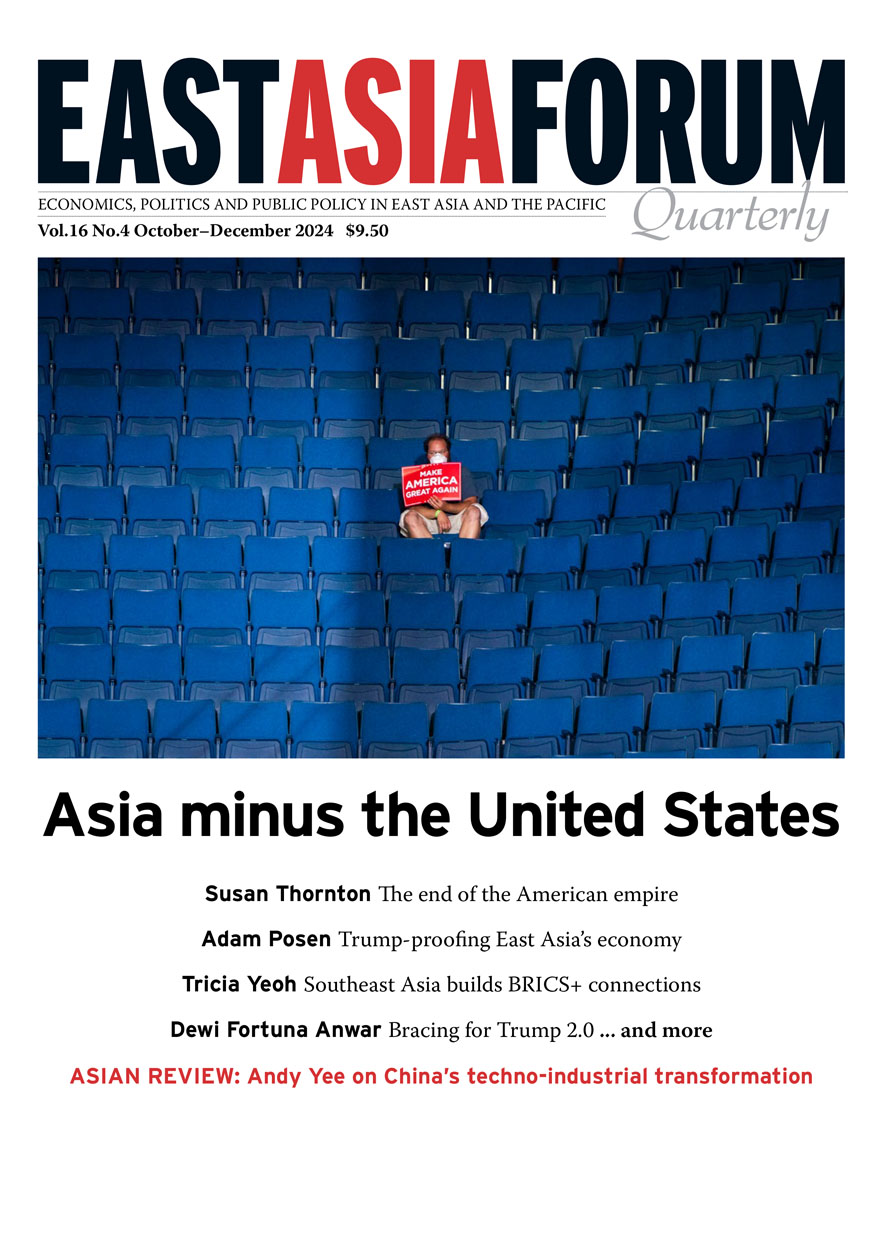
East Asia Forum Quarterly: Volume 16, Number 4, 2024 »
Publication date: December 2024
The global economy’s trajectory toward instability has been evident since Trump 1.0. A second Trump presidency will likely amplify protectionism, strategic competition and global disorder. This edition of East Asia Forum Quarterly examines how Asia can respond, emphasising the region’s role in defending multilateralism, addressing climate change and ensuring global stability.
Download for free
Not available for purchase
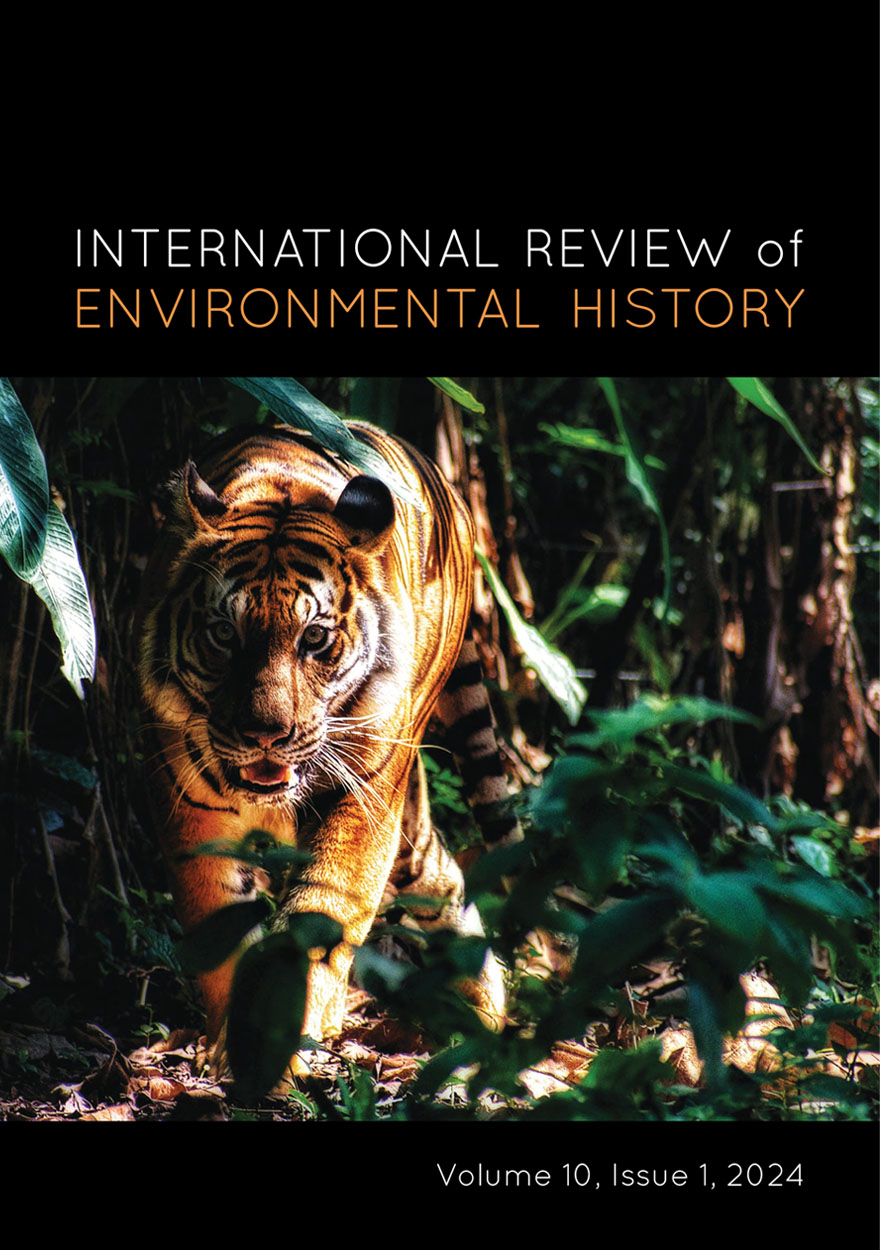
International Review of Environmental History: Volume 10, Issue 1, 2024 »
Edited by: James Beattie, Ruth Morgan
Publication date: October 2024
This latest issue of the International Review of Environmental History takes readers from tiger hunts in sixteenth-century India to the rise of organic foods across the Anglosphere by the late 1970s. Along the way, readers will encounter the ways that Cantonese migrants interpreted the environments of Aotearoa New Zealand at the turn of the twentieth century, and the influence of environmentalism in the US trade union movement during the 1960s. This issue also features a forum on a growing area of interest for environmental historians and allied practitioners, the history of emotions in response to environmental change. Here, scholars outline an historiography of ecological anxiety and reflect on the role of emotions in their historical practice at a time of planetary crisis. Despite the diverse settings and topics of the papers herein, together the collection reveals the enduring impacts of how different societies have understood and shaped the more-than-human world.
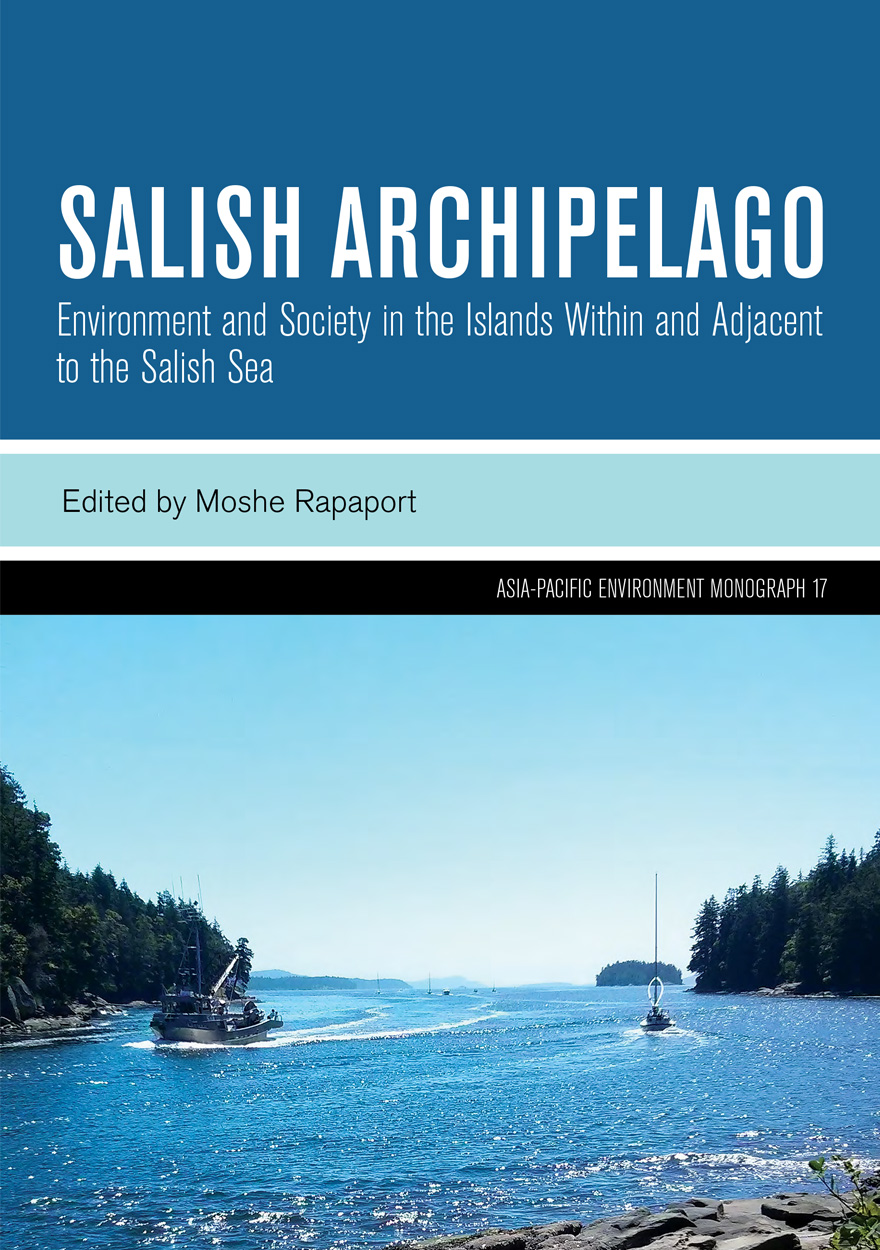
Salish Archipelago »
Environment and Society in the Islands Within and Adjacent to the Salish Sea
Edited by: Moshe Rapaport
Publication date: June 2024
The Salish Archipelago includes more than 400 islands in the Salish Sea, an amalgamation of Canada’s Georgia Strait, the United States’ Puget Sound, and the shared Strait of Juan de Fuca. The Salish Sea and Islands are named for the Coast Salish Indigenous Peoples whose homelands extend across the region.
Holiday homes and services have in many places displaced pristine ecosystems, Indigenous communities, and historic farms. Will age-old island environments and communities withstand the forces of commodity-driven economies? This new, major scholarly undertaking provides the geographical and historical background for exploring such questions.
Salish Archipelago features sections on environment, history, society, and management, accompanied by numerous maps and other illustrations. This diverse collection offers an overview of an embattled, but resilient, region, providing knowledge and perspectives of interest to residents, educators, and policy makers.
Format: Hardback
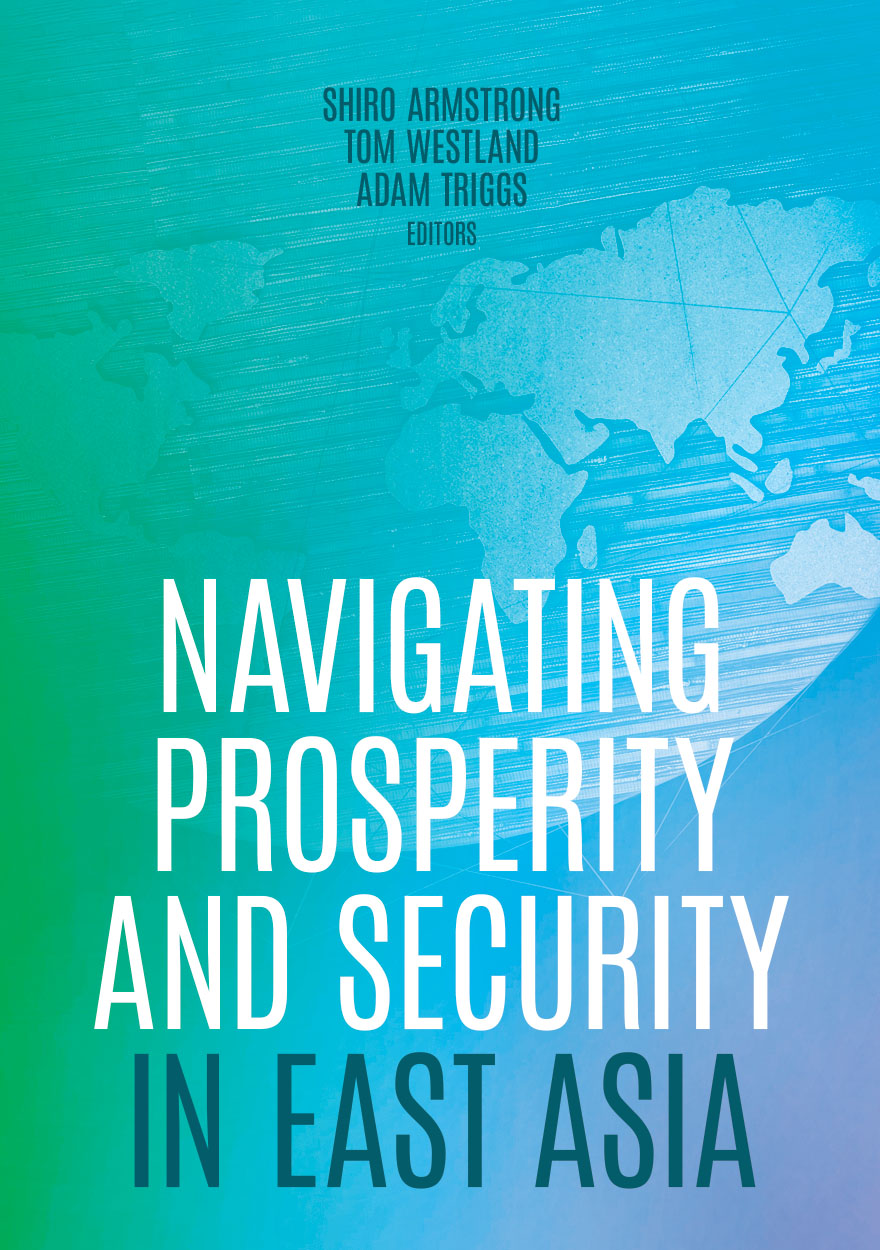
Navigating Prosperity and Security in East Asia »
Publication date: May 2023
The world’s two largest economies, the United States and China, are locked in a trade war, complicating policy choices internationally. These choices are sharper for the countries of East and Southeast Asia than they are elsewhere, because the multilateral rules-based economic order on which East Asian economic integration and cooperation is built is under threat.
Economic policy has never been separate from security considerations. For decades, the national security risks inherent in economic exchange have been mitigated under a US-led system that allowed the strengthening of economic ties, including between China and the rest of the world. But economics and security are increasingly entangled in a way that is damaging to both, creating a dangerous trade-off. Now, as global uncertainties grow, the risks of international exchange—rather than its benefits—are beginning to dominate the calculus for some policymakers.
Against this backdrop, how can Southeast Asian countries and US allies in Asia balance their security interests and their economic interests? And how can these countries, individually and collectively, broaden their policy options and deepen economic integration? This volume investigates the domestic and international dimensions of these questions.
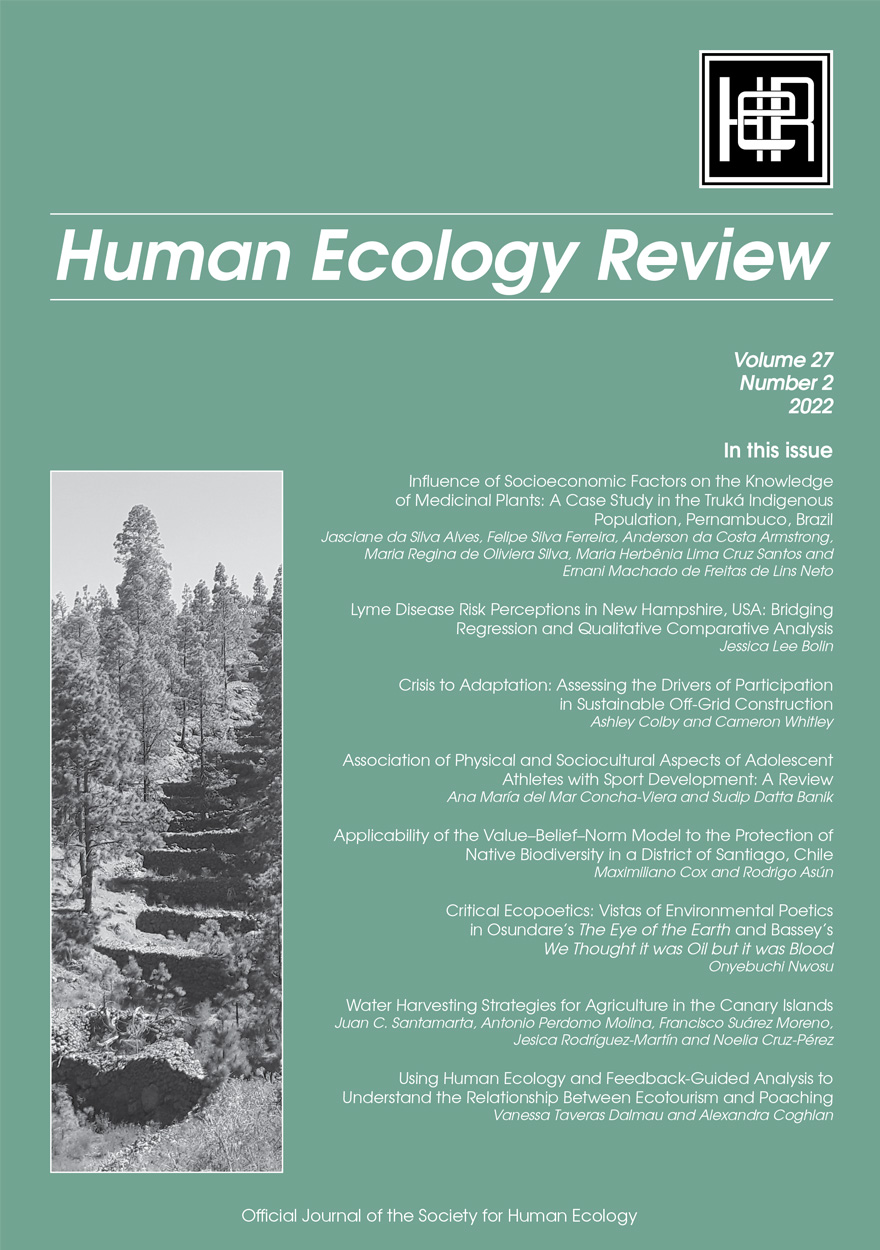
Human Ecology Review: Volume 27, Number 2 »
Publication date: December 2022
Human Ecology Review 27(2) features contributions from researchers from around the world, including Brazil, the United States, Mexico, Chile, Australia, Uruguay, Spain, and Nigeria. Studies presented include the indigenous Truká people’s knowledge of medicinal plants in Pernambuco, Brazil (Alves et al.); perceptions of Lyme disease risk in New Hampshire, USA (Bolin); social and physical aspects of adolescent sport development (Concha-Viera and Datta Banik); the role of ecopolitics and ecopoetics in promoting environmental concerns about and resistance to oil exploration in Africa (Nwosu); traditional water harvesting and conservation in arid regions of the Canary Islands (Santamarta et al.); feedback-guided analysis of ecotourism and poaching in the Dominican Republic (Taveras Dalmau and Coghlan); motivations for participation in off-grid ecovillages, featuring a case study from Uruguay (Colby and Whitley); and biodiversity protection in Santiago, Chile (Cox and Asún).
Download for free
Not available for purchase

Alliances, Nuclear Weapons and Escalation »
Managing Deterrence in the 21st Century
Edited by: Stephan Frühling, Andrew O’Neil
Publication date: December 2021
In an era of great power competition, the role of alliances in managing escalation of conflict has acquired renewed importance. Nuclear weapons remain the ultimate means for deterrence and controlling escalation, and are central to US alliances in Europe and the Indo-Pacific. However, allies themselves need to better prepare for managing escalation in an increasingly challenging geostrategic and technological environment for the US and its allies. While the challenge of great power competition is acute at both ends of Eurasia, adversary threats, geography and the institutional context of US alliances differ. This book brings together leading experts from Europe, Northeast Asia, the United States and Australia to focus on these challenges, identify commonalities and differences across regions, and pinpoint ways to collectively manage nuclear deterrence and potential escalation pathways in America’s 21st century alliances.
‘Nuclear weapons play an important role in deterrence and preventing military conflict between great powers, while also posing an existential threat to humanity. It is vital that we have a nuanced understanding of this important challenge, so that such weapons are never used. This book offers many important perspectives and makes a significant contribution to the overall debate about these powerful weapons.’
— The Hon Julie Bishop, Chancellor, The Australian National University, Former Foreign Minister of Australia
‘This timely book identifies a wide range of challenges US alliances both in the Indo-Pacific and Euro-Atlantic face as they seek to ensure the value of US extended deterrence, particular the US nuclear umbrella, against China and Russia. This unique collection of chapters written by experts in US allies in both regions presents widely varying security perceptions and priorities. To understand such differences is the key to globally strengthen the US alliance systems, which are a significant advantage Washington enjoys over the two competitors.’
— Yukio Satoh, former President of The Japan Institute of International Affairs (JIIA)
‘This is a timely and thoughtful collection of essays that should serve to jumpstart public discussion and debate—the absence of which is widely noted and much bemoaned. Each contributor examines an aspect of the complicated, multifaceted nuclear debate by discussing the range of dilemmas from deterrence to disarmament. The various views set out here are more relevant than ever as Russia, China and the United States flex their nuclear muscles in new and sometimes dangerous ways. This book should be read by anyone interested in the preventing the use of nuclear weapons and understanding complexities of alliances in an increasingly dangerous world.’
— Madelyn Creedon, former Principal Deputy Administrator of the US National Nuclear Security Administration and Assistant Secretary of Defense for Global Strategic Affairs

International Review of Environmental History: Volume 7, Issue 2, 2021 »
Edited by: James Beattie
Publication date: November 2021
The second issue of International Review of Environmental History for 2021 features contributions on limpets and global environmental history, US bird conservation, soyabean agriculture in South America, settler environmental change in Aotearoa New Zealand, woodlands, communities and ecologies in Australia, and irrigation and agriculture in Australia.
Download for free
Not available for purchase
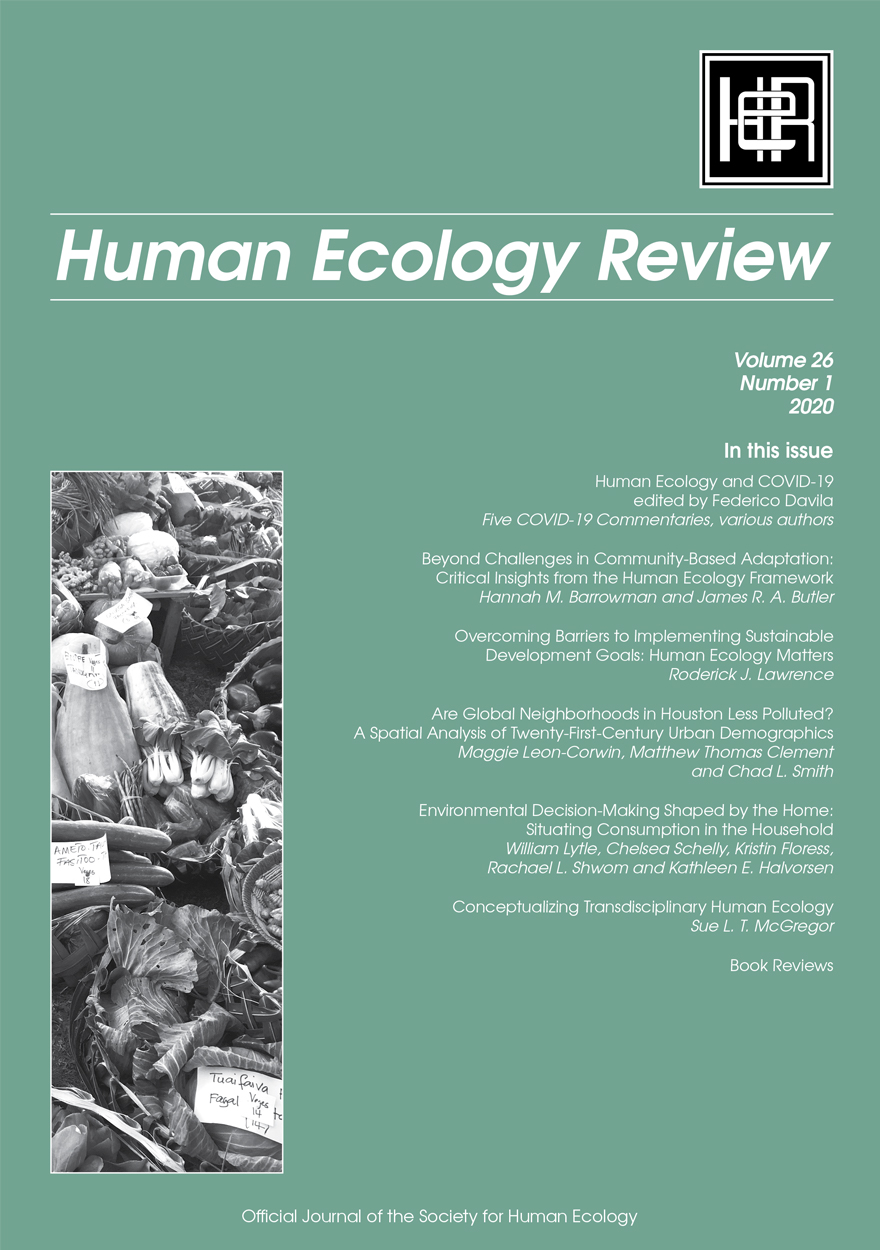
Human Ecology Review: Volume 26, Number 1 »
Publication date: April 2021
Human Ecology Review is a semi-annual journal that publishes peer-reviewed interdisciplinary research on all aspects of human–environment interactions (Research in Human Ecology). The journal also publishes essays, discussion papers, dialogue, and commentary on special topics relevant to human ecology (Human Ecology Forum), book reviews (Contemporary Human Ecology), and letters, announcements, and other items of interest (Human Ecology Bulletin). Human Ecology Review also publishes an occasional paper series in the Philosophy of Human Ecology and Social–Environmental Sustainability.
Download for free
Not available for purchase
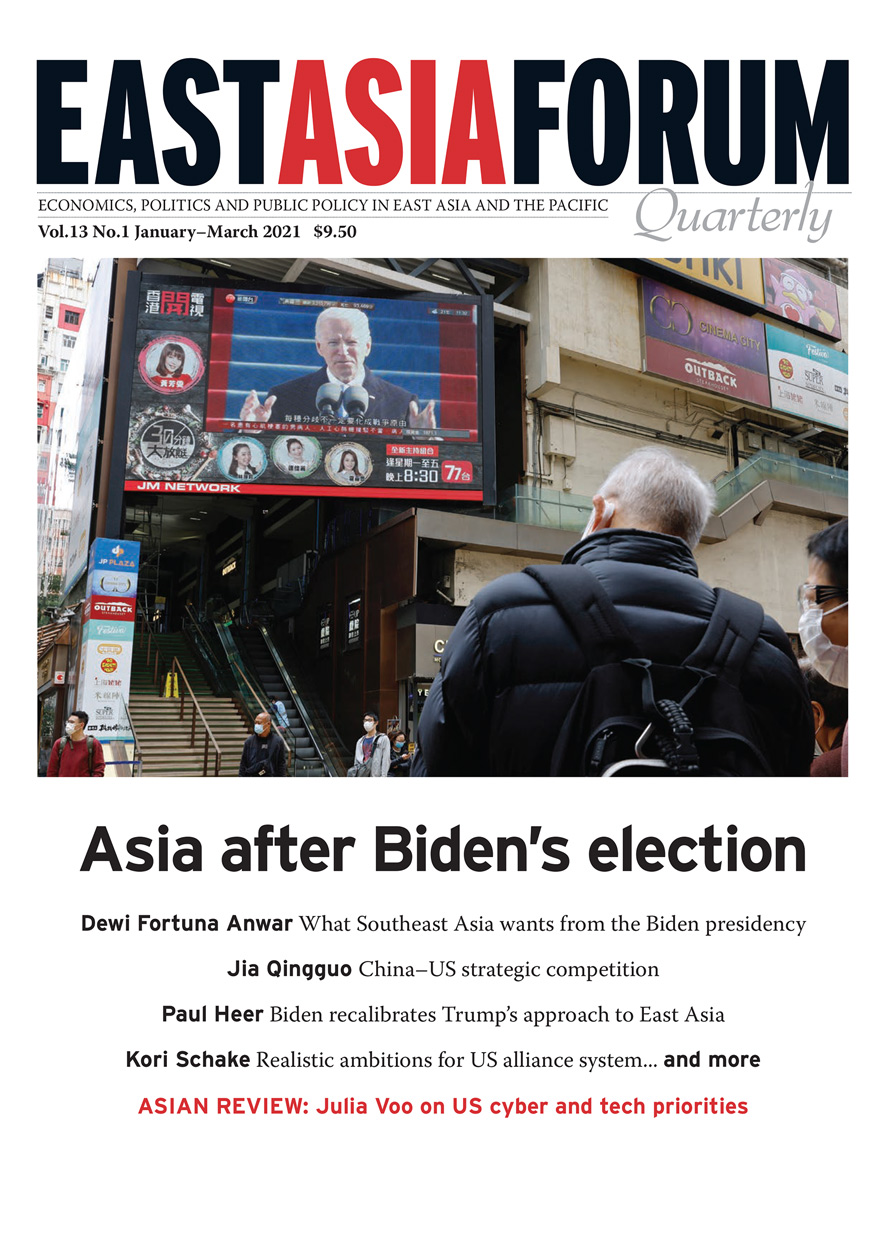
East Asia Forum Quarterly: Volume 13, Number 1, 2021 »
Publication date: March 2021
Few American administrations in living memory face as arduous a set of domestic and external policy challenges as that led by President Joseph R. Biden. What faces the new team in Washington is nothing short of herculean: arrest the scourge of COVID-19, grow the economy and begin once more to address the historic grievances of racial injustice and socioeconomic inequality. How it handles those tasks will profoundly affect its capacity to prosecute an effective foreign policy.
This issue of the Quarterly explores the monumental foreign policy challenges in Asia that await the Biden administration. Our contributors ponder the fate of the US–China trade war, the limits to achieving an ambitious national climate policy, the ongoing challenges on the Korean peninsula, in South and Southeast Asia, and the likely financial constraints on a more forward-leaning US military posture.
Download for free
Not available for purchase

East Asia Forum Quarterly: Volume 12, Number 1, 2020 »
Publication date: March 2020
The changing geopolitical context compels middle powers to act. Countries have responded by forming explicit alliances, building upon hedging strategies or altering their leanings from one great power to another. The need for collective action is more urgent than ever to deal with emerging regional and global challenges.
This issue of East Asia Forum Quarterly looks at middle powers and the range of priorities they have. Some are focused on their domestic priorities while others are more eager to shape the political, economic and security dimensions in the region. Our contributors offer a variety of perspectives on the challenges that middle powers face and identify the call of middle-power vision in defending the rules-based order.
EAFQ 12.1 is dedicated to Aileen S.P. Baviera, founding president of Asia Pacific Pathways to Progress, who died on 21 March 2020, from pneumonia related to COVID-19.
East Asia Forum Quarterly grew out of East Asia Forum (EAF) online, which has developed a reputation for providing a platform for the best in Asian analysis, research and policy comment on the Asia Pacific region in world affairs. EAFQ aims to provide a further window onto research in the leading research institutes in Asia and to provide expert comment on current developments within the region. The East Asia Forum Quarterly, like East Asia Forum online, is an initiative of the East Asia Forum (EAF) and its host organisation, the East Asian Bureau of Economic Research (EABER) in the Crawford School of Economics and Government in the College of Asia & the Pacific at The Australian National University.
Download for free
Not available for purchase



